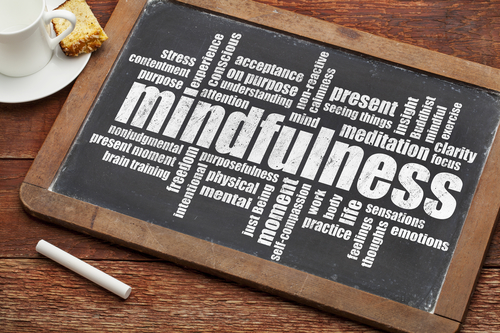5 Scientifically Proven Mindfulness Skills that WILL Make you a Better Leader (and a better person)
by
As a
pastor, I’m always looking for ways to enhance my leadership. I believe
good leaders should never stop learning. In the past few years as we’ve
learned more about the human mind and brain, science is affirming an
ancient contemplative practice rooted in church history and scripture, mindfulness.
It’s helped me so much that I’m currently writing a book on Christian
mindfulness. Five basic skills comprise the essence of this practice. In
this post I explain those skills that will benefit any leader.
 First, what is mindfulness? Mindfulness is a spiritual discipline
akin to biblical meditation. It’s setting aside daily time to be still
before God, to be in His presence in the present moment. It’s not
emptying our minds, but filling our minds with thoughts of Him and His
Word. And it’s not some weird new age practice. It’s a science based
practice that helps us disengage from automatic and unhealthy thoughts,
feelings, memories and reactions to simply be in God’s presence. It’s
both a devotional practice and a way to live each moment.
First, what is mindfulness? Mindfulness is a spiritual discipline
akin to biblical meditation. It’s setting aside daily time to be still
before God, to be in His presence in the present moment. It’s not
emptying our minds, but filling our minds with thoughts of Him and His
Word. And it’s not some weird new age practice. It’s a science based
practice that helps us disengage from automatic and unhealthy thoughts,
feelings, memories and reactions to simply be in God’s presence. It’s
both a devotional practice and a way to live each moment.Last year hundreds of studies were published that showed the benefits of mindfulness. Here are a few of them.
- improved memory
- less anxiety and depression
- a healthier heart
- better ability to cope with stress
- enhanced relationships
- less reactivity
- overall improved well-being
Skill 1: Observing.
In this skill you learn to notice what’s happening inside you and in
your immediate surroundings, like zooming in with a camera lens.
Skill 2: Describing.
In this skill you use your words to convey what you’re observing. This
involves learning to label your emotions and describe bodily sensations.
Skill 3: Detaching.
In this skill, you learn to keep your unhealthy comparisons,
predictions, and evaluations about your life from sticking to your soul,
akin to how food slides off a Teflon coated frying pan.
Skill 4: Loving yourself.
Loving yourself does not mean we become self-centered. Rather, we
practice what Jesus told us to do when he said we are to love our
neighbors as ourselves. It means that we learn to love ourselves as we
are, rather than basing our view of ourselves on other people’s approval
or on our own performance.
Skill 5: Acting mindfully.
This skill means that we learn to become more aware of what we are
doing as we are doing it. We learn to be in the moment rather than being
on autopilot or trying to get to a ‘better’ moment.
Developing these skills helps leaders be fully present for those they lead and care about.The more present you are as a leader, the more effective your leadership.
What benefits have you read about or learned that mindfulness brings?
Related posts:
No comments:
Post a Comment